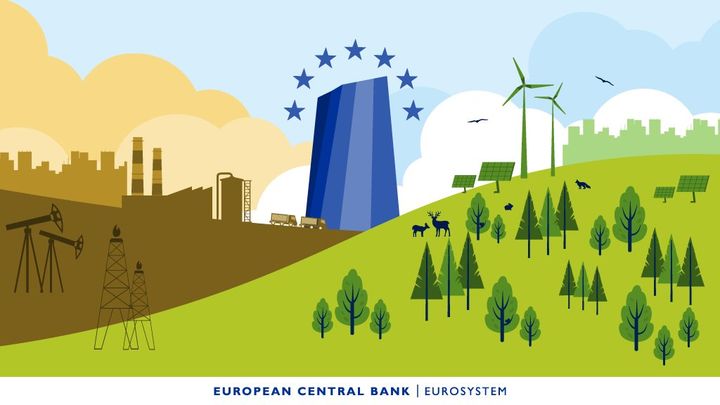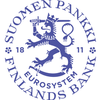ECB steps up climate work with focus on green transition, climate and nature-related risks
30.1.2024 15:45:00 EET | Suomen Pankki | News

ECB press release 30 January 2024
- Increasing impact of climate crisis on economy and financial system drives need for more action
- ECB reaffirms commitment to ongoing climate actions and will review them regularly
- Three focus areas to guide work for 2024 and 2025: implications of green transition, physical impact of climate change, and nature-related risks for the economy and financial system
The European Central Bank (ECB) has decided to expand its work on climate change, identifying three focus areas that will guide its activities in 2024 and 2025:
- the impact and risks of the transition to a green economy, especially the associated transition costs and investment needs;
- the increasing physical impact of climate change, and how measures to adapt to a hotter world affect the economy;
- the risks stemming from nature loss and degradation, how they interact with climate-related risks and how they could affect the ECB’s work through their impact on the economy and financial system.
“A hotter climate and the degradation of natural capital are forcing change in our economy and financial system. We must understand and keep up with this change to continue to fulfil our mandate”, said ECB President Christine Lagarde. “By broadening and intensifying our efforts we can better understand the implications of these changes and, in doing so, help to underpin stability and support the green transition of the economy and the financial system.”
To this end, the following concrete measures have been agreed.
- On the transition to a green economy, the ECB will intensify its work on the effects of transition funding, green investment needs, transition plans and how the green transition affects aspects of our economy such as labour, productivity and growth. The results will also inform the ECB’s macro modelling framework. Furthermore, the ECB will explore, within its mandate, the case for further changes to its monetary policy instruments and portfolios in view of this transition.
- On the increasing physical impact of climate change, the ECB will deepen its analysis of the impact of extreme weather events on inflation and the financial system, and how this can be integrated into climate scenarios and macroeconomic projections. It will also assess the potential impact of adaptation, or lack thereof, to climate change on the economy and financial sector, including related investment needs and the insurance protection gap.
- On nature loss and degradation, the ECB will analyse the close link with climate change, and the associated economic and financial implications. It will also further explore the role of ecosystems for the economy and the financial system.
- With regard to its own operations, the ECB will launch its eighth Environmental Management Programme to support achieving its 2030 carbon reduction targets. Together with the entire Eurosystem, its work will include eco-design principles for the future euro banknote series and incorporate environmental footprint considerations into the design of a digital euro that is currently in the preparation phase.
The decision to step up efforts in these areas follows the ECB’s stocktake of its climate actions since launching its 2022 climate agenda, and an adjustment of its work plan in the light of the changing environment and improvements in data availability and methodologies.
The work planned for these focus areas will complement the ECB’s current climate-related actions in its ongoing tasks, including monetary policy and banking supervision. The ECB will improve its climate-related indicators, risk monitoring and disclosures, and continue to contribute to the development of climate-related policies in European and international fora. Looking ahead, the ECB remains committed to regularly reviewing these actions to ensure they are fit for purpose and contribute to fulfilling its mandate.
A comprehensive overview of the planned work programme for 2024 and 2025 is available in the Annex and more information can be found on the ECB’s website.
Notes
- The ECB needs to account for the effects of climate change in the conduct of its tasks within its mandate. Additionally, without prejudice to its price stability objective, the ECB must support the general economic policies in the European Union, with a view to contributing to a high level of protection of and improvement in the quality of the environment. This includes the goals of the European Climate Law. Under Article 11 of the Treaty on the Functioning of the European Union, the ECB is also required to integrate environmental protection requirements into the definition and implementation of its policies and activities.
- The ECB introduced climate change considerations into its monetary policy framework following its strategy review in 2021.
Keywords
The Bank of Finland is the national monetary authority and central bank of Finland. At the same time, it is also a part of the Eurosystem, which is responsible for monetary policy and other central bank tasks in the euro area and administers use of the world’s second largest currency – the euro.
Subscribe to releases from Suomen Pankki
Subscribe to all the latest releases from Suomen Pankki by registering your e-mail address below. You can unsubscribe at any time.
Latest releases from Suomen Pankki
Hushållens aktieinvesteringar avkastade mycket bra 20259.2.2026 10:00:00 EET | Pressmeddelande
Hushållens aktieinvesteringar avkastade under året starkt i och med värdeökningen på inhemska aktier och vid årets slut var investeringarnas värde det högsta genom tiderna. Också hushållens fondinvesteringar var vid årets slut större än någonsin.
Kotitalouksien osakesijoitukset tuottivat erittäin hyvin vuonna 20259.2.2026 10:00:00 EET | Tiedote
Kotitalouksien osakesijoitukset tuottivat vuoden aikana vahvasti kotimaisten osakkeiden arvonnousun myötä, ja sijoitusten arvo oli vuoden lopussa kaikkien aikojen suurin. Myös kotitalouksien rahastosijoitukset olivat vuoden lopussa kaikkien aikojen suurimmat.
Household equity investments performed exceptionally well in 20259.2.2026 10:00:00 EET | Press release
Households’ equity investments performed strongly during the year, driven by the appreciation of domestic shares, and the value of investments reached an all-time high at the end of the year. Households’ mutual fund investments also closed the year at an all-time high.
Eurosystemets penningpolitiska beslut5.2.2026 15:23:03 EET | Pressmeddelande
ECB-rådet beslutar om penningpolitiken i euroområdet. ECB-rådet beslutade idag att hålla de tre styrräntorna oförändrade.
EKP:n rahapoliittisia päätöksiä5.2.2026 15:23:03 EET | Tiedote
EKP:n neuvosto päättää euroalueen rahapolitiikasta.8 EKP:n neuvosto päätti tänään pitää EKP:n kolme ohjauskorkoa ennallaan.
In our pressroom you can read all our latest releases, find our press contacts, images, documents and other relevant information about us.
Visit our pressroom